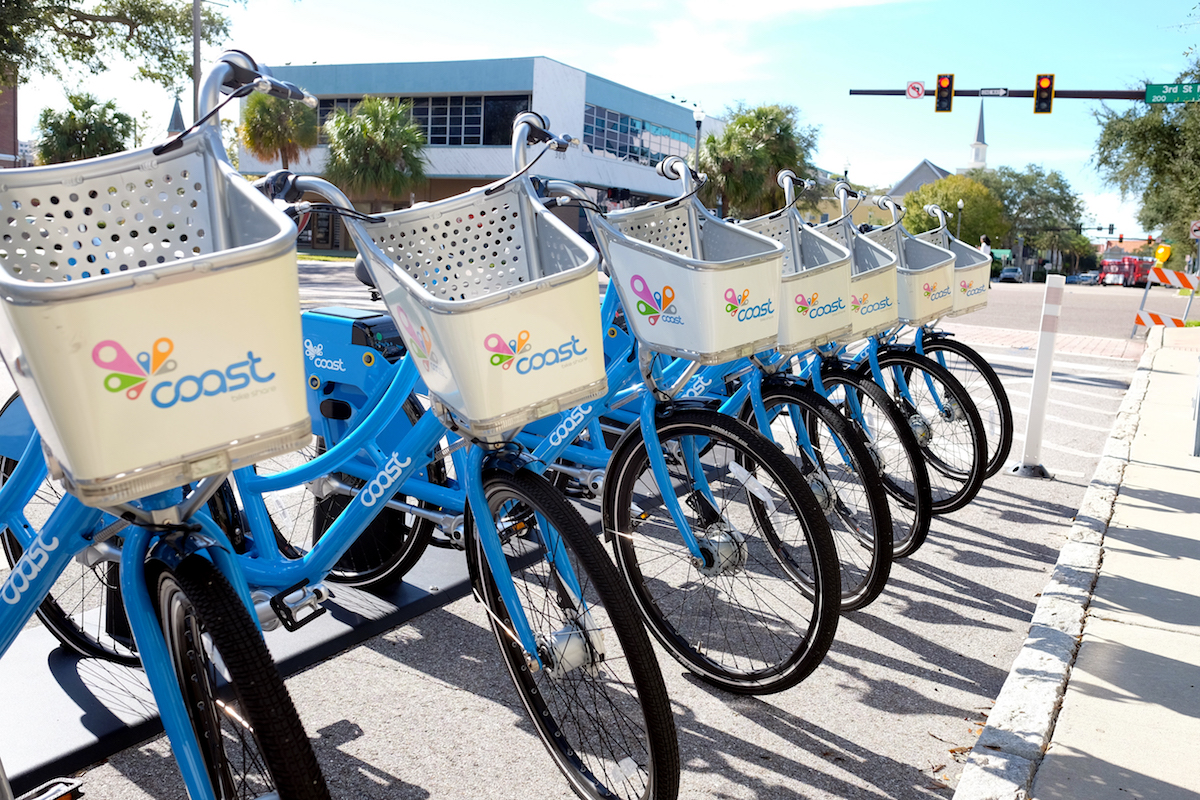3 Reasons Bike Sharing Is Totally, Completely, Utterly Awesome

If you don’t feel like adulting today, your commute might be the last thing you’re looking forward to.
Nobody likes being trapped in the car and stuck in traffic, especially when you see that smug bicyclist breeze by at twice your rate of speed.
Well, what if I told you that you could be that cyclist and that you could potentially have even more money in your pocket?
I’m talking about bike sharing, a program of public pay-per-ride bicycles taking the U.S. by storm.
Basically, companies or cities place tons of bikes at hubs around town, and you rent them for an hour, a day, or, if you want to make your commute a throwback to your days as a paperboy, a year. Then you deposit them at another hub for the next thrifty commuter to find.
Last year, people took 28 million rides on shared bikes through the U.S., according to a study by the National Association of City Transportation Officials. That’s up from 2.3 million rides in 2011.
Now, I don’t want to lead you astray — bike sharing might not make financial sense for you. But if you live within a 30-minute bike ride of your place of work, your best bet might be jumping on the bandwagon.
First Things First, Do You Even Have Bike Share in Your City?
Bikemunk, a cycling website dedicated to bringing more people onto two wheels, has compiled a comprehensive list of bike-share programs across the U.S. It took roughly a full week for Bikemunk managing editor P.C. Chiles’ team of researchers to compile the list.
“It was a project for sure,” he said in an email.
But it also means you now have a resource to determine if your city has a bike-share program. And with a few clicks, you can check the price of an annual membership — and kiss that boring commute goodbye.
3 Reasons Bike Share Programs Might Make Sense For You

Bike-share programs won’t work for everyone. You might live in a bicycle-unfriendly city, face lots of snow days, have a disability or live too far from your workplace.
But if none of that applies to you, here are three reasons you might want to give bike sharing a try:
1. It Could Save You a Bunch of Money
I’ve had my $200 road bike for about a year-and-a-half, and during that time I’ve needed to replace a couple of tubes and tires and get my chain tuned up a few times. In total, I’ve probably spent $255 or so over the last year.
Most annual fees for bike-share programs in Bikemunk’s database fall between $40 and $99 — the price is even cheaper for students. When you consider savings on gas, car payments or the cost of buying a bike, it could totally make sound financial sense for you to bike share.
2. It’s a Lot Better for the Environment — and for Cities
This one is sort of a no-brainer: no engine, no pollution. Fewer cars, less traffic.
“Bike-share programs are enormously important to cities — and not just big ones,” Chiles said.
3. It’s Good For Your Health (Consider It Your New Year’s Resolution!)
Chiles cites studies of Copenhagen (a bicycle-centric city) that show the positive impact that cycling has on personal health.
Residents who cycled to and from work each day experienced a 30% reduction in mortality, according to a 2013 study by the city of Copenhagen. That number is even higher — 41% — in a more recent study that appeared in the British Medical Journal.
As always in life, there are cons to the whole bike-share program thing. If you are a tinkerer, you could maintain a cheap stable of bikes for your cycling pleasure and save on the $99-per-year bike-share membership. Plus there’s always the weather and potential workplace sweatiness to contend with.
But with hourly pricing structures for most bike shares, you can always just give it a try one day. The only thing you have to lose is that boring old commute.
Alex Mahadevan is a data journalist at The Penny Hoarder. He chooses bike over car as much as humanly possible.












